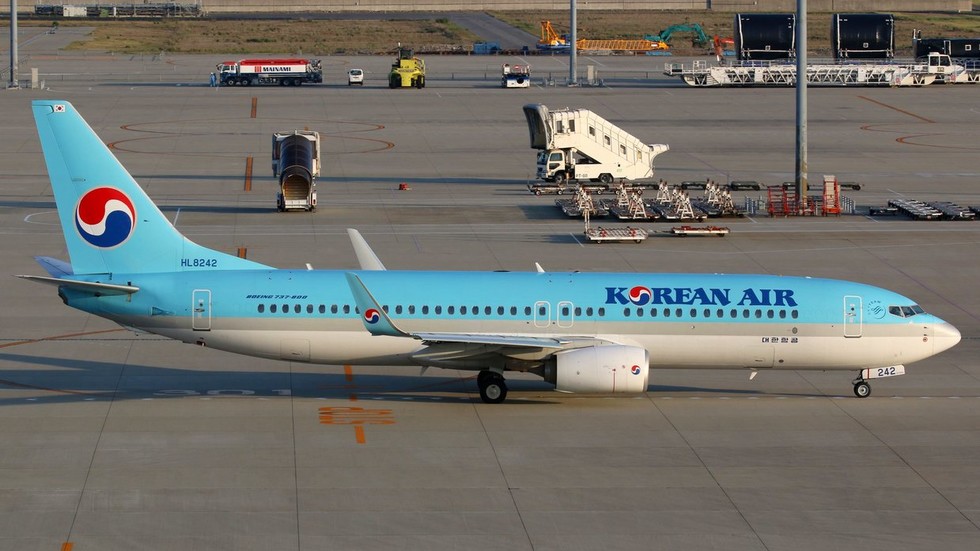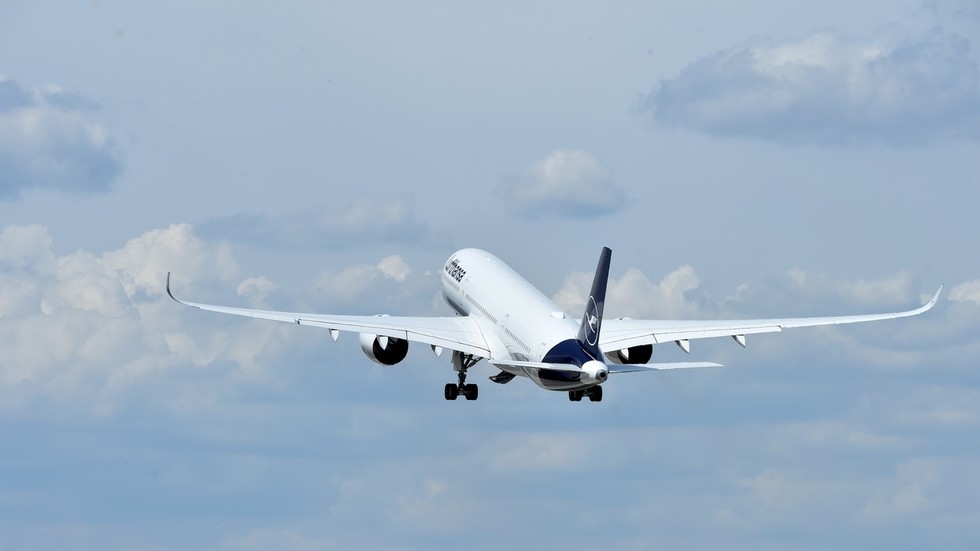- Продажа
- Аренда
- Оборудование
- Услуги
- Менеджмент воздушного судна
- Обеспечение полетов
- Консалтинг и Аудит
- Коммерческая загрузка
- Техобслуживание
- ТО и ремонт двигателей
- Ремонт интерьеров ВС
- Доработка по бюллетеням завода-изготовителя
- Поддержание летной годности ВС
- Взвешивание и определение центровки ВС
- Поставка АТИ и запасных частей
- Модернизация ВС
- ТО и ремонт компонентов
- Страхование
- Дополнительные услуги
- Новости
- Наш флот
- Контакты
Новости
Airlines & Airports Issue Stark Warning to European PMs on Inconsistent Approach to Travel Restrictions
Failure to follow science-based advice runs contrary to expert authorities and is crippling Europe’s economies
Brussels and Geneva — Europe’s airline and airport associations have written to Prime Ministers, Transport, Health and Home Affairs Ministers across the European Union, Schengen and the UK, setting out deep concerns over their failure to implement coherent and science-based approaches to travel restrictions.
The letter, sent jointly from Airports Council International Europe (ACI EUROPE), Airlines for Europe (A4E) and the International Air Transport Association (IATA), is highly critical of the introduction of new restrictions relating to selected countries. Many of these restrictions, state the organisations, are inconsistent with the principles laid out by the World Health Organization (WHO) and the European Centre for Disease Prevention and Control (ECDC).
The aviation sector has been dealt a crippling economic blow by the pandemic. Despite repeated calls for a science-based, harmonised and coordinated approach to new restrictions – differing national approaches have emerged. Some of these unilateral national measures are contrary to expert guidance and further damage consumer confidence. Moreover, the imposition of such restrictions fails to take into account other options governments have to protect their citizens, such as effective track-and-trace systems.
“The European Aviation sector is urging EU/Schengen States and the UK to reconsider restrictions to travel that have been imposed between them – including quarantines”, state the three associations in the letter. “We fail to see any valid science-based and proportionate justification for such restrictions from a health policy perspective”.
The aviation associations assert that renewed efforts must be urgently put into:
- Effectively co-ordinating and aligning responses to the evolving epidemiological situation at EU level and in close co-operation with the UK, to be addressed urgently and jointly by home affairs, transport and health ministries and the European Commission;
- Re-enforcing the principle of risk-based and proportionate measures – localising restrictions and NOT imposing blanket country bans, with quarantine used as a very last resport – following ECDC guidance;
- Ensuring the interoperabiliy of contact tracing apps, as none of the existing apps are interoperable;
- A harmonised implementation of the EASA/ECDC and ICAO Take-Off Aviation Health Safety Protocols;
- Informing the public accordingly and in close cooperation with the travel and tourism industries.
Read the full text of the letter (pdf)
For more information, please contact:
- ACI Europe: Ines Rebelo, ines.rebelo@aci-europe.org +32 2 552 09 73
- A4E: Jennifer Janzen, jennifer.janzen@a4e.eu +32 499 828294
- IATA: Corporate Communications, corpcomms@iata.org +41 22 770 2967
Notes for editors:
- ACI EUROPE is the European region of Airports Council International (ACI), the only worldwide professional association of airport operators. ACI EUROPE represents over 500 airports in 45 European countries. Our members facilitate over 90% of commercial air traffic in Europe: 2.5 billion passengers, 20.7 million tonnes of freight and 25.7 million aircraft movements in 2019. In response to the Climate Emergency, in June 2019 our members committed to achieve Net Zero carbon emissions for operations under their control by 2050, without offsetting.
- Airlines for Europe (A4E) is Europe’s largest airline association, based in Brussels. The organisation advocates on behalf of its 16 airline group members to help shape EU aviation policy to the benefit of consumers, ensuring a continued safe and competitive air transport market. Follow us on Twitter @A4Europe.
- IATA (International Air Transport Association) represents some 290 airlines comprising 82% of global air traffic. You can follow us at https://twitter.com/iata for announcements, policy positions, and other useful industry information.
‘Worst months in the history of commercial aviation’: UK airports set to lose over $5 BILLION in revenue this year
Data showed that revenue was down just under £2 billion ($2.5 billion) in total compared to the previous year, as passenger numbers plunged by as much as 99 percent. The losses are expected to reach at least £4 billion ($5.1 billion) in 2020.
“Such losses undermine the ability of airport business to power the future prosperity of their local economies, forgoing crucial investment projects and, unfortunately, causing job losses,” said the AOA.
According to the AOA’s chief executive Karen Dee, those were “the worst four months in the history of commercial aviation.” She said passenger numbers have begun to pick up, but airports would continue to face pressures “unimaginable six months ago.”
Since the United Kingdom introduced a 14-day quarantine period for international arrivals last month, airlines have been warning it would decimate domestic tourism and damage exports.
British Airways has already made heavy cuts to its operation at London’s Gatwick Airport and reportedly warned that it could pull out of Gatwick altogether. Another struggling airline, Virgin Atlantic, announced plans to leave the airport last month. Budget airline easyJet has warned of upcoming workforce furloughs. Airport baggage handler, Swissport, said last month that 4,500 jobs were at risk, with plane engine maker Rolls-Royce looking to cut 9,000 employees.
Airport companies have been also calling for more government support, including a suspension of air passenger duty, wage subsidies after the furlough scheme ends in October, and relief from business rates similar to hospitality and retail firms.
Moody’s warned last week that global air travel demand won’t recover to pre-Covid levels till at least 2023.
South Korea orders airlines to urgently check their Boeing 737 aircraft following FAA warning

FILE PHOTO: Korean Air Boeing 737-800 at Nagoya Chubu Centrair airport (NGO) in Japan © Global look Press / Markus Mainka
In an emergency order released on Saturday, the Ministry of Land, Infrastructure and Transport (MOLIT) said that nearly 150 jets operated by nine companies are subject to the checks. The inspections will target older Boeing 737 models (not Max planes which are still grounded) that are parked for at least seven straight days, or have had less than 11 flights since being returned to service.
The precautionary measure comes on the heels of the FAA’s Emergency Airworthiness Directive that instructed air companies to inspect some stored Boeing 737 aircraft as the air check valves on the planes could become corroded. This may cause a complete loss of power in both engines without the ability to restart and may force pilots to land before reaching an airport.
Most of the planes affected by the FAA directive are in the US, where around 2,000 older Boeing single-aisle jets have remained grounded as the coronavirus pandemic all but erased travel demand. Meanwhile, India has also ordered three domestic operators which have Boeing 737s in their fleet – SpiceJet, Vistara, and Air India Express – to conduct inspections.
EU demands US lift tariffs ‘IMMEDIATELY’ after fulfilling WTO requirements in Airbus dispute

FILE PHOTO: An Airbus A350 at the «Franz-Josef-Strauss» airport in Munich, Germany © AFP / Christof Stache
European planemaker Airbus said on Friday it had taken “the final step” to end the long-running row over subsidies, which has been at the core of the dispute between Brussels and Washington. The company said it had accepted higher interest rates on government loans it received from the French and Spanish governments to help develop its A350 jet.
“Today, the governments of France and Spain agreed with Airbus SE to modify the terms of the Repayable Launch Investment granted by them for development of the A350 aircraft to reflect market conditions,” the European Commission said regarding the decision.
Both the manufacturer and the EU stressed that the move removes any grounds for US tariffs, which are especially damaging under the current economic circumstances, as the world continues to deal with the coronavirus outbreak. Last year, the US’ punitive tariffs targeted $7.5 billion worth of EU goods – the largest-ever penalty authorized by the WTO.
“Unjustified tariffs on European products are not acceptable and, arising from the compliance in the Airbus case, we insist that the United States lifts these unjustified tariffs immediately,” said Commissioner for Trade Phil Hogan.
The bloc’s top trade official added that if the sides fail to reach a settlement, Brussels will “be ready to fully avail itself of its own sanction rights.” According to the Commission, the EU has already picked the products that could potentially fall under its retaliatory measures. It also pointed to a parallel WTO case involving unfair support for US aerospace behemoth Boeing, which could result in punitive EU duties on US goods later this year.
The transatlantic legal battle began in 2004, when the US government accused Britain, France, Germany and Spain of providing illegal subsidies and grants to support Airbus. At the same time, the EU filed a similar complaint on US subsidies for Boeing.
After winning a $7.5 billion award in the Airbus case, the US imposed a 10 percent tariff on most European-made Airbus jets and duties of 25 percent on a list of EU products, ranging from cheese to olives and whiskey. In June, the Trump administration escalated the trade row, threatening to levy new tariffs on $3.1 billion worth of exports from France, Germany, Spain, and the UK, prompting a strong reaction from Brussels.